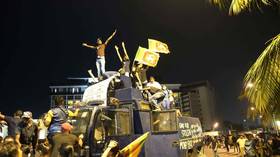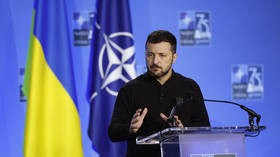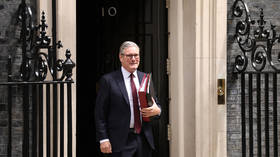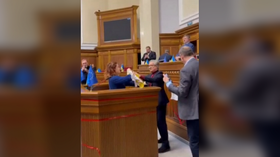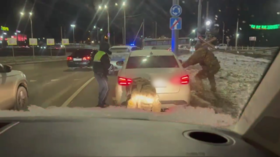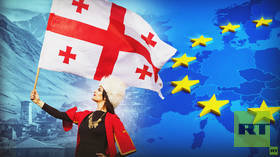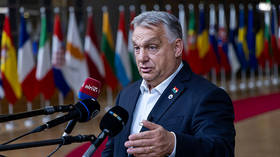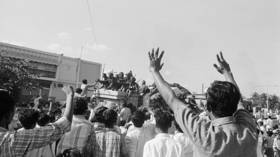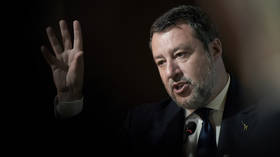Sri Lankan president resigned by email – media
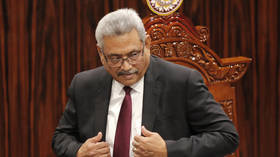
Gotabaya Rajapaksa reportedly resigned as president of Sri Lanka on Thursday, stepping down after months of protests against his rule and having fled the country a day earlier. Rajapaksa oversaw the destruction of Sri Lanka’s agricultural economy and leaves behind a country wracked by inflation and political instability.
The now former president arrived in Singapore on Thursday morning, after leaving Sri Lanka on a military jet to the Maldives a day earlier. His letter of resignation, which was originally scheduled to be delivered on Wednesday, was emailed to the speaker of the Sri Lankan parliament shortly after his arrival in Singapore, multiple media outlets reported.
Rajapaksa had been prevented from leaving his country by airport staff earlier this week before he made his escape aboard a military plane. It is widely believed that he had sought to leave Sri Lanka before resigning in order to avoid the possibility of detention once his presidential powers expire and he is no longer immune to arrest.
The government of Singapore has said that Rajapaksa is in the city-state on a “private visit” and has not applied for asylum.
Under Rajapaksa’s leadership, Sri Lanka was driven to bankruptcy, defaulting on its foreign loan debts in May and introducing fuel rationing earlier this month. The economic turmoil has been blamed on a loss of tourism revenue due to the coronavirus pandemic and a climate-motivated ban on chemical fertilizers that halved the country’s agricultural output in a matter of months.
Rajapaksa’s government attempted to tame rising costs by printing more money, an approach that further accelerated inflation. Concurrently, tax cuts deprived Sri Lanka of vital revenue needed to import food, fuel, and medicine.
After months of demonstrations and cabinet reshuffling, the protest movement against Rajapaksa came to a head last week when a mob of protesters stormed the president’s residence, prompting the military to whisk him away to safety. Protesters have also demanded the resignation of Prime Minister Ranil Wickremesinghe. His house was set on fire over the weekend.
Wickremesinghe has been made acting president, while protesters have since been dispersed by police from his and Rajapaksa’s residences. Local media states that opposition parties will name their candidate to replace Wickremesinghe as PM on Friday, while a caretaker government will run the country until fresh elections are called.


